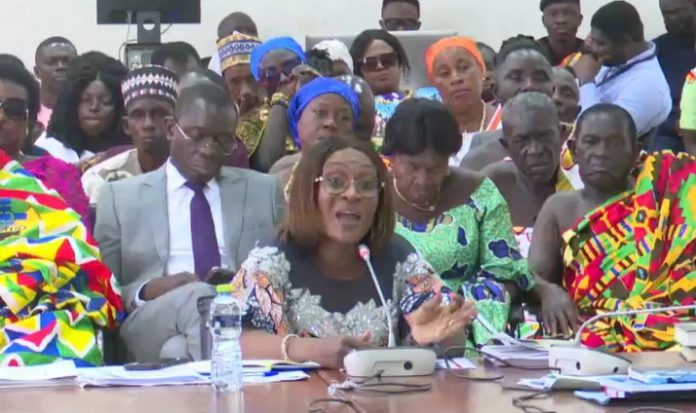Minister of state-designate for the Finance Ministry, Abena Osei-Asare has touted the success of the Planting for Food and Jobs (PFJ) initiative.
According to her, food prices in the country could have been worse but for the flagship programme.
The nominee who doubles as Atiwa East Member of Parliament (MP) made these remarks during her vetting by Parliament’s Appointments Committee on Wednesday.
She stated that the policy prior to 2019 led to reduced maize and rice prices and decreased imports of these staples.
Additionally, the COVID-19 pandemic in 2020 led to increased competition for food, resulting in price hikes, adding that there has been a reduction in food inflation from 59.1% to 28.7%.
“Yes, Mr Chairman, we have seen some improvements in our food production, and had it not been for the Planting for Food and Jobs policy, things could have gotten worse. When you check our numbers from 2018 downward, you realize that the prices of maize and even rice dropped. Coming down to 2019, we even reduced the amounts of imports we did for maize and rice,” she stated.
The former Deputy Finance Minister expressed optimism that phase two of PFJ will also be a success, as she touched on measures by the government to tackle various inflationary factors, including the PC Peg programme and seeking IMF support to bolster the economy.
“Previously you could have one factor determining the rate of inflation. But from 2022 to part of 2023, there were various factors. And so, we were not dealing with just one factor, but dealing with several factors. We needed to take measures that would help us address all those factors.
“That is what we did by coming up with the PC Peg programme to assist in reviving the economy and we also had to go to the IMF for some support to back the programme we had initiated,” She indicated.
The Agric Ministry on Tuesday, March 12, launched a nationwide registration of farmers as part of the second phase of the Planting for Food and Jobs Programme (PFJ Phase 2).
The PFJ Phase 2, which began in August last year, seeks to establish an input-credit guarantee system for farmers to address the challenges encountered during the program’s initial phase.
ALSO READ:


